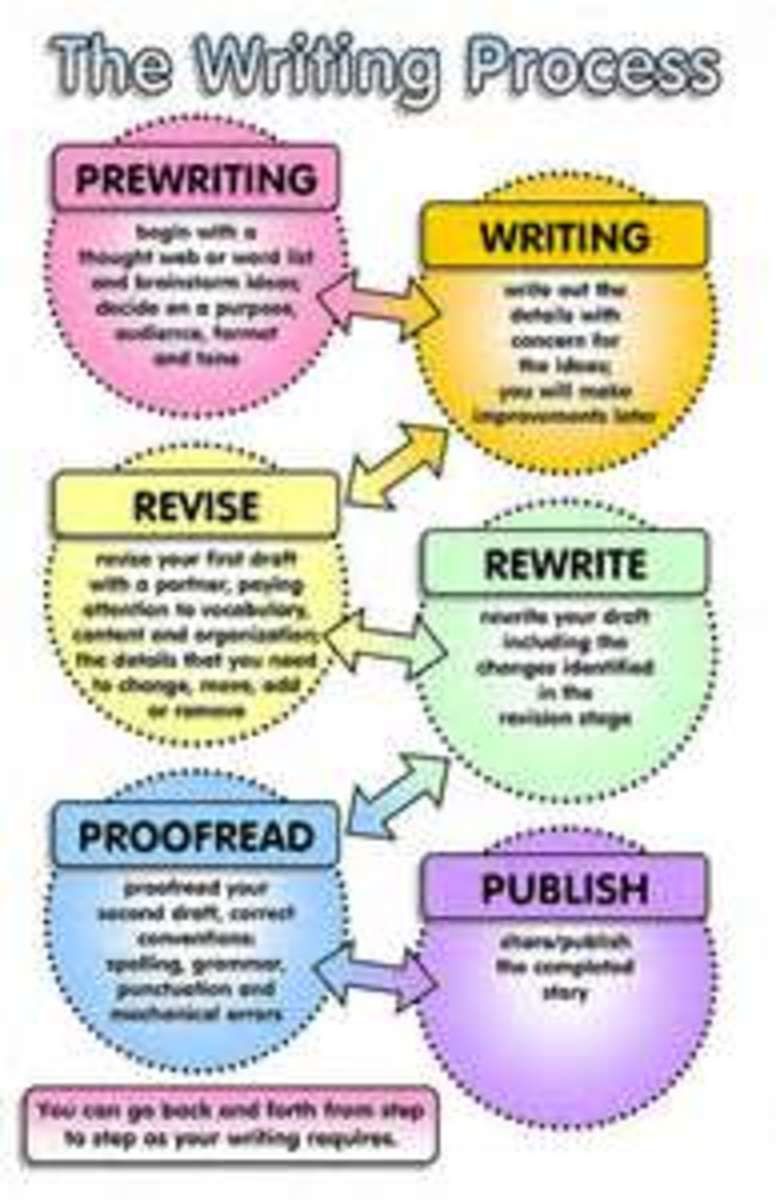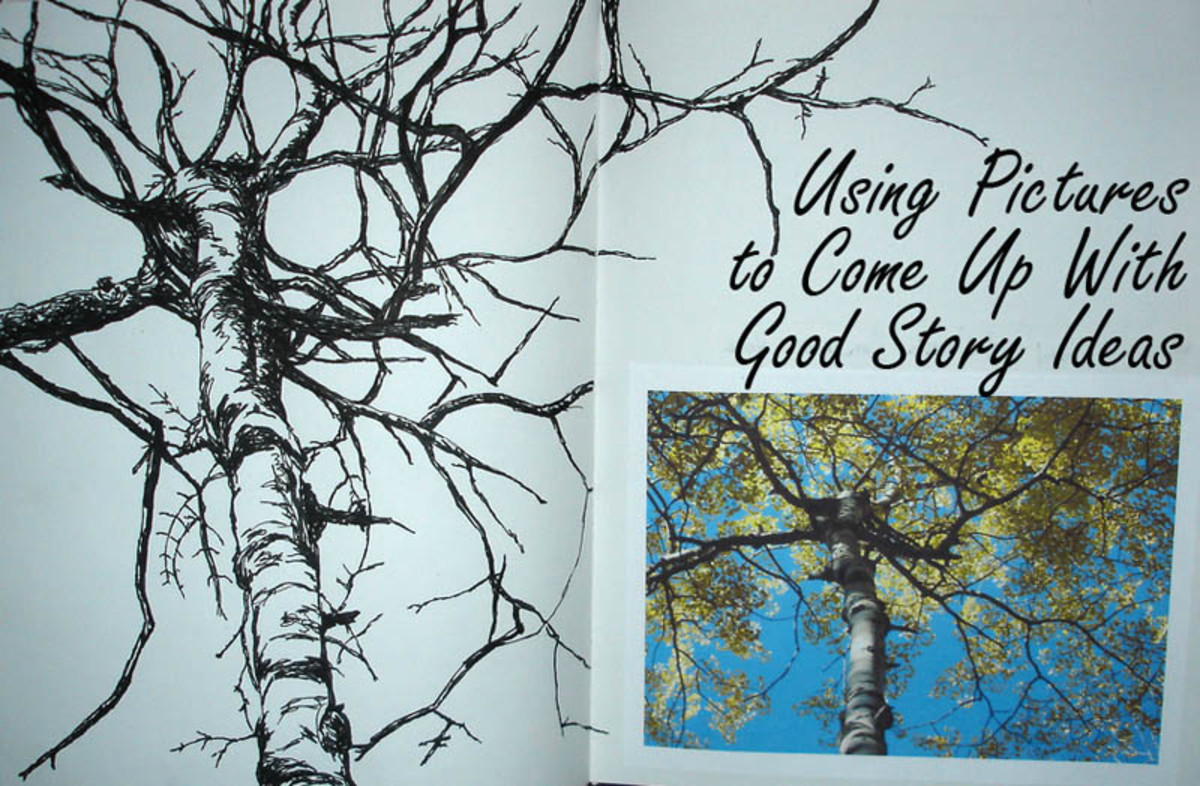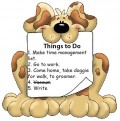Writing Tips: No Excuses!

An Excerpt from Poetry Magazine's April 2012 Issue.
Poet Patricia Smith shares an encounter with Gwendolyn Brooks:
I had uttered something that countless other writers have uttered before, a silence filler of sorts, a throat-clearing that I assumed Ms. Brooks, and anyone else who had ever picked up a pen, would instantly relate to and agree with. I was craving the comfort of common ground when I said, "I have a real problem finding time to write."
The corner or her mouth twitched, then spread into one of those indulgent smiles that knots you up a little inside. It's the smile a teacher gives you before handing back a test paper with a grade lower than either of you expected.
Without looking directly at me, Gwendolyn said, "Your problem should be finding time for anything else."
“How do I overcome Writer’s Block?” “I can’t seem to get inspired to write.”
As a magazine editor and writer, I hear these statements a lot. In fact, I used these very phrases as an excuse not to write for years. No more! I've learned that the first statement is a myth and the second is just, well, uh...searching for scholarly word...silly. They are excuses not to write. Worse, they are the ramblings of a lazy writer who doesn't want to work at their craft, but wants to simply let the writing just happen.
Certainly this happens, the sudden appearance of inspiration, the five hundred page novel penned in one long haul of a coffee fueled day, and it’s a glorious and wonderful occurrence. But, if we writers waited for these moments, our portfolios would be nonexistent and our pocket books would be even more pinched. Below you will find brief tools to fight the urges to use these excuses.
I’ve touched on this topic before, but, I wanted to revisit it and focus it more on these two ideas.
How Do I Overcome Writers Block?
You don’t. You can't. It's a myth. Furthermore, there’s always something to write. If you're experiencing what you believe to be writer's block, the problem is usually that you aren’t writing, or at least not enough. I’m going to give you a bit of stolen advice. It’s advice given by everyone from Stephen King to Steve Kowit to every English and writing professor worth their title everywhere in the world. That advice is to simply write. If you write, writers block won’t have a chance to creep in. Keep that pen moving, keep those fingers typing. Even if what you’re writing is garbage, you’re still writing. Anne Lamont calls these "shitty first drafts" and we shouldn't be afraid of them. Write those first drafts as if no one will ever read them and you'll win the battle of writer's block.
Writer’s Block is a myth. It’s an excuse not to write. It’s bred from a lack of writing. Don’t focus on it. Focus instead on the act of writing and you will find that your mind is free and clear to write, write, write!
Which leads to the next point:
More Writing Tips
- Writing Poetry Tips: In the Palm of Your Hand, a book review
A review of a fantastic poetry handbook by a fantastic American poet. - Writing Poetry Tips, Part one: What Can I say?
a lot of novice poets try to use fancy and cultured language. Don't! - Writing Poetry Tips, Part Two: Write it, Own it
Another article with writing tips. This one says, essentially, "Don't be anonymous". - Writing Poetry Tips, Part Three: The Found Poem and the Enjambed Line
Poetry tips. Using endstopepd and enjambed lines, using found poems to practice. - Writing Tips: How to Be Prolific
Some tips on how to become a more prolific writer - Writing Tips: How to Have a Productive Workshop
How to have a productive writing workshop and handle critiques - Writing Tips: Showing vs. Telling-- it's all About Gravy
How to write compelling scene, that shows instead of tells. - Writing Tips: The Different Types of Point of View
A look at the three most common narrative points of view, and the pros and cons of each.
I Can’t Seem to Get Inspired to Write
This is just plain silly. Inspiration is everywhere: in music, in a good book (or a bad one), in your pets, in food, in your children, in nature. It’s everywhere, just look. This is why I carry a notebook with me at all times. I jot down notes and ideas, story ideas, observations. These inevitably spark inspiration.
Let’s use a colorful metaphor:
Inspiration is a fickle mistress. You must pursue her. She does not make a habit of coming to you without you earning her appearance. You have to work for her affections. She must be wined and dined. Wooed. Seduced.
Most of all, you have to write. If you write, she will come. It may take all day, all week, all month, all year, a decade, a lifetime, but come she will and she will be worth the wait. It will be ecstasy. Pure joy! When she arrives, ready to be used for your creative purposes, treat her kindly. Caress her, Kiss her, praise her, tell her she’s beautiful, buy her flowers and most importantly, don’t ignore her or expect her to stay without your effort. After all, she is fickle and will gladly leave you for another who is willing to work to keep her. Perhaps someone with a fatter bank account and more impressive resume.
Yes, she may pop in for a quickie once in a while, but this can’t be counted on. If we wait for this, we will spend most of our time being frustrated and dissatisfied, and probably irritable. If we want Inspiration, we must pursue her. Pursue her where she is: your dirty little mind.
If you can’t get inspired to write, stop being a lazy lover. Get creative. She’s out there, look for her. She wants you to find her.
The Bottom Line:
Write. Stop making excuses and write. We’re writers. That’s what we do.That's a better draft, It shows everything that the previous sentence told. We now know how Bill is feeling by seeing how he looks and how he's acting. It's not perfect, but it's a start, and hopefully it helps you in your journey to show vs tell.









